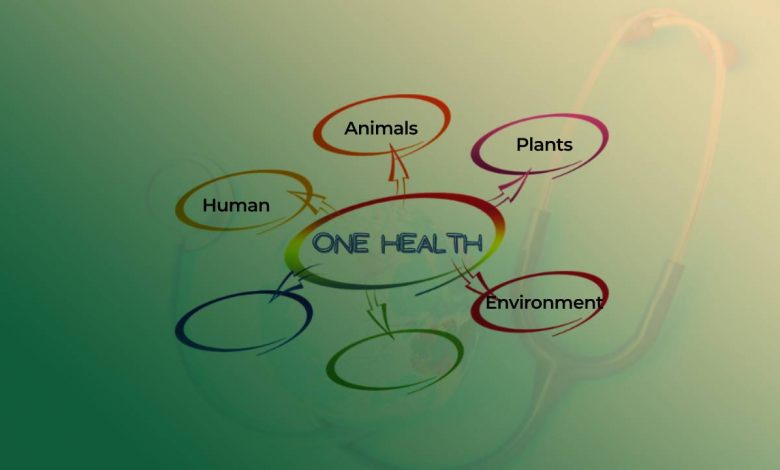Daily Current Affairs for UPSC
One Health Joint Plan of Action

Topic- Government Policies and Interventions [GS Paper-2]
Context- Recently, a new One Health Joint Plan of Action was jointly launched by the the Food and Agriculture Organization (FAO), the United Nations Environment Programme (UNEP), the World Health Organization (WHO), and the World Organisation for Animal Health (WOAH, founded as OIE).
Key Highlights
- The new One Health Joint Plan of Action was developed through a participatory process, providing a set of activities
- It aims to strengthen collaboration, communication, capacity building and coordination equally across all sectors responsible for addressing health concerns at the human-animal and plant-environment interface.
- The plan has been made valid from 2022-2026 which aimed at mitigating the health challenges at global, regional, and country levels.
- In April 2022 a pilot project in the state of Uttarakhand was launched in order to implement the One Health Framework by One Health Support Unit.
- Major Focus Areas of the Action Plan include
- One Health capacity for health systems
- Emerging and re-emerging zoonotic epidemics
- Endemic zoonotic
- Neglected tropical and vector-borne diseases
- Antimicrobial resistance and the environment
- Food safety risks
One Health Concept
- One Health is an approach that recognizes the fact that the health of people is closely connected to the health of animals and our shared environment.
- The vision of One Health derives its blueprint from the agreement between the tripartite-plus alliance comprising the Food and Agriculture Organization of the United Nations (FAO), the World Organisation for Animal Health (OIE).
- Its objective is to encourage collaborations in the field of research and sharing of knowledge at multiple levels across various disciplines such as human health, animal health, plants, soil, environmental and ecosystem health in ways that improve, protect and defend the health of all species.
Need for One Health Concept
- Human populations are growing and expanding into new geographic areas hence as a result of the close contact with animals and their environments more opportunities are being for diseases to pass between animals and people.
- Of the contagious diseases affecting humans, more than 65% are transmitted from zoonotic or animal to man origin.
- Hence the One Health Concept is a must to tackle such situations.
- Disruptions in environmental conditions and habitats also provide new opportunities for diseases to pass to animals.
- The movement of people, animals, and animal products has increased from international travel and trade due to which diseases can spread quickly across borders and worldwide.
- Scientists have found that there are more than 1.7 million viruses circulating in wildlife, and many of them are likely to be zoonotic.
- This implies that unless there is timely detection, India risks facing many more pandemics in times to come.
Way Forward
- The Covid-19 pandemic has shown the relevance of ‘One Health’ principles in the governance of infectious diseases, especially efforts to prevent and contain zoonotic diseases throughout the world.
- Hence India needs to come up with such a model across the country and to establish meaningful research collaborations across the world.
- There is a need to develop best practice guidelines for informal market and slaughterhouse operation (for example inspections, disease prevalence assessments), and creating mechanisms to operationalise ‘One Health’ at every stage down to the village level.
- Awareness generation, and increased investments toward meeting ‘One Health’ targets should be prioritised.





.png)



